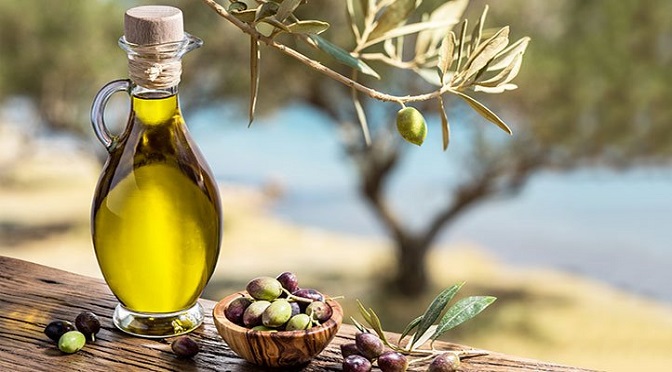The key role that olive oil plays in a healthy body has been known since ancient times.
Olive oil’s benefits derive from its high content in anti-oxidants whose combined action effectively limits the destruction caused by free radicals, reinforcing the body’s defenses and protecting the heart and vessels!

Thus, this “liquid” gold as Homer used to term it, is brimming with a whole host of nutrients:
Tocopherols (vitamin E)
Phenols
Squalene
Aromatic compounds
Phytosterols
Oleoropain
Many scientific studies have shown that olive oil is a valuable nutrient and a very strong weapon against chronic diseases and contributes:
to lowering bad cholesterol levels (LDL) in the blood
to maintaining the levels of “good” cholesterol (HDL) in the blood
to preventing cardiovascular conditions and protecting the body from cardio-vascular disease due to its high content in anti-oxidants
to improving the absorption of calcium by the body
to improving the metabolism in diabetics and as a result balancing the blood sugar levels
to good intestinal function
to treating stomach and duodenal cancer, by facilitating digestion
to reducing gastric fluids
to preventing cancer
And finally … to revitalising the skin!
Olive oil is greatly recommended for use in cooking, due to its high resistance to high temperatures (170oC).

However, one should not forget that whilst olive oil enhances health and well-being, it should be consumed in moderation as it is high in calories (1 tablespoon contains 135 calories). The daily recommended intake in the context of a balanced diet is 2-3 tablespoons (one for our food and one for a salad).
Finally, it is important to choose products whose ingredients contain olive oil and not trans fatty acids, as well as products cooked in olive oil.
Click HERE for further information.